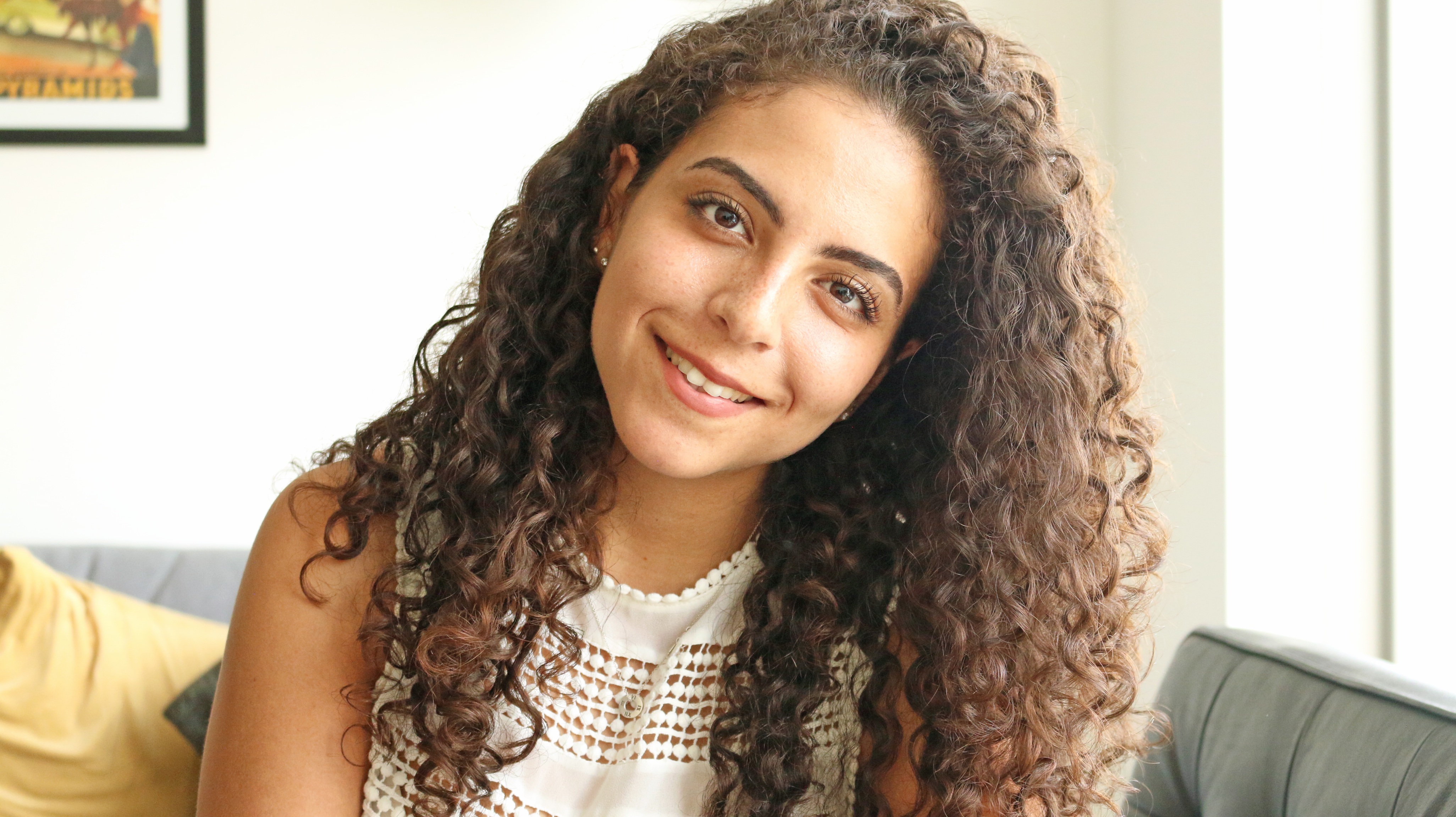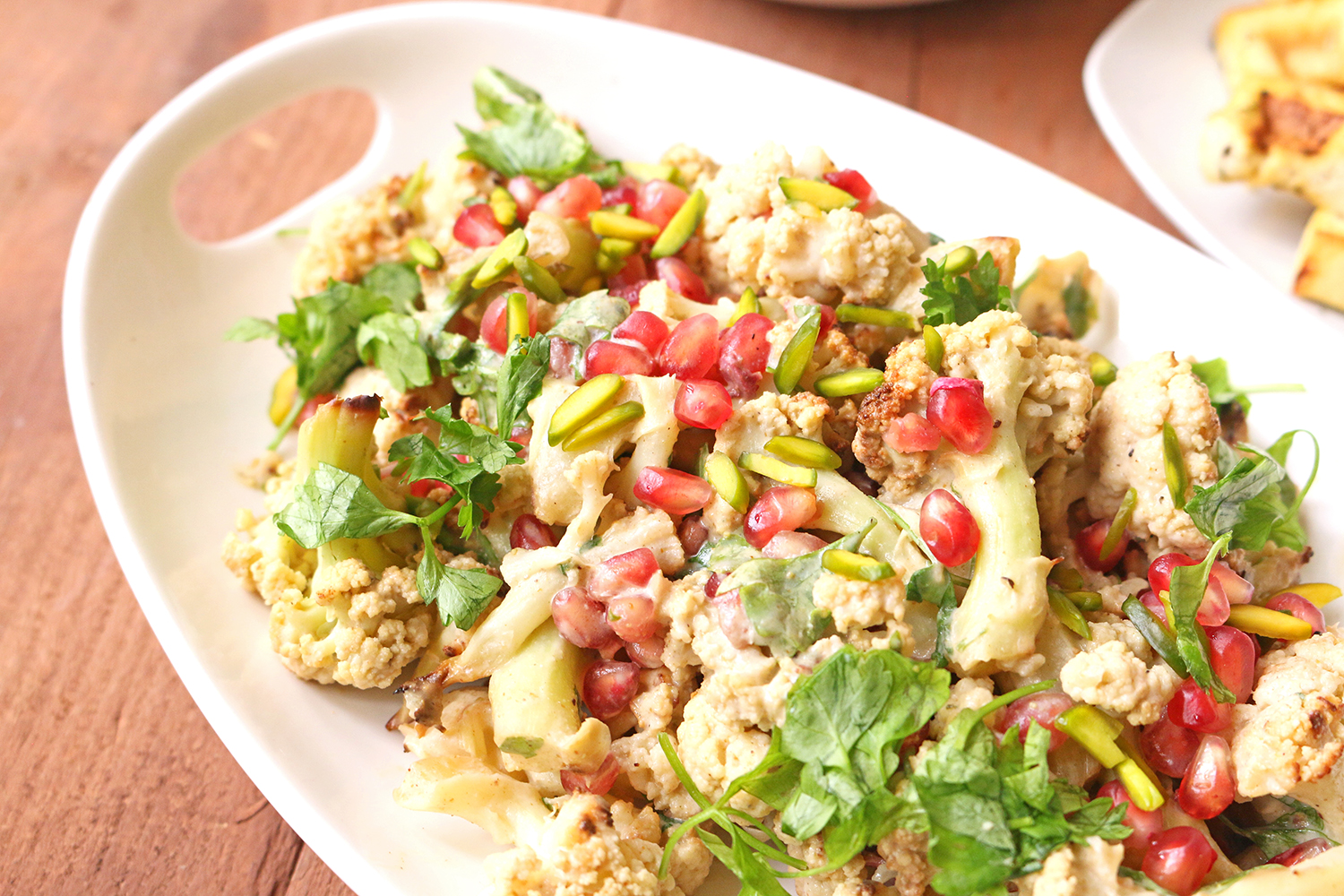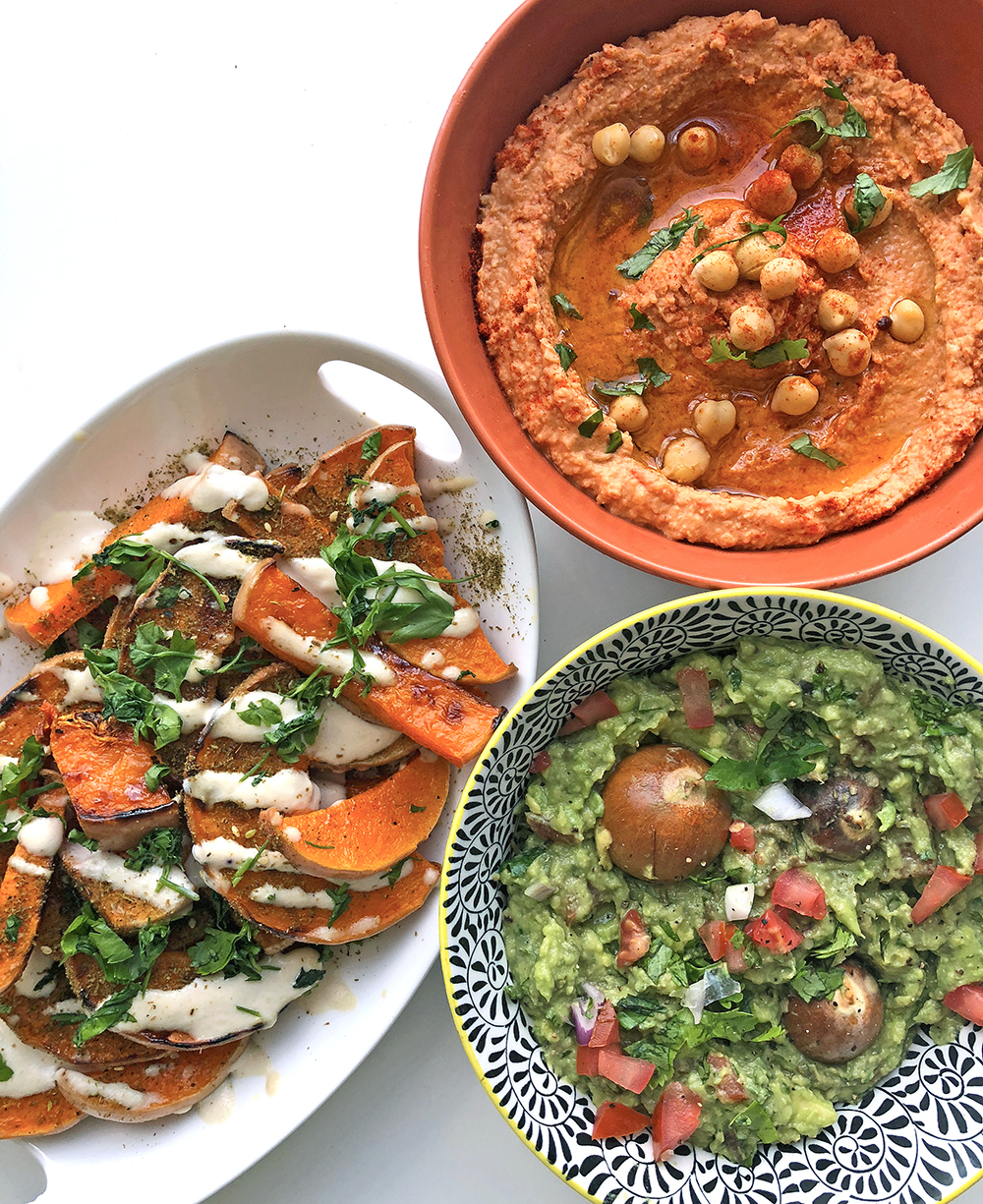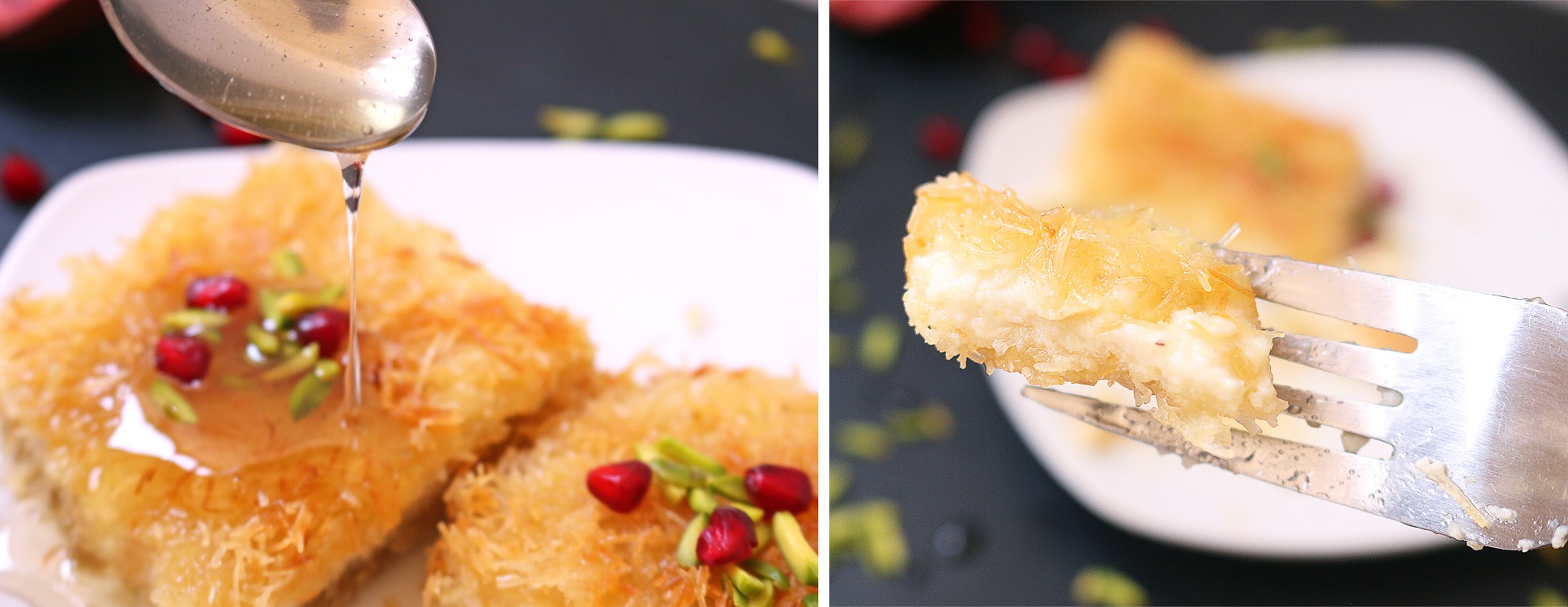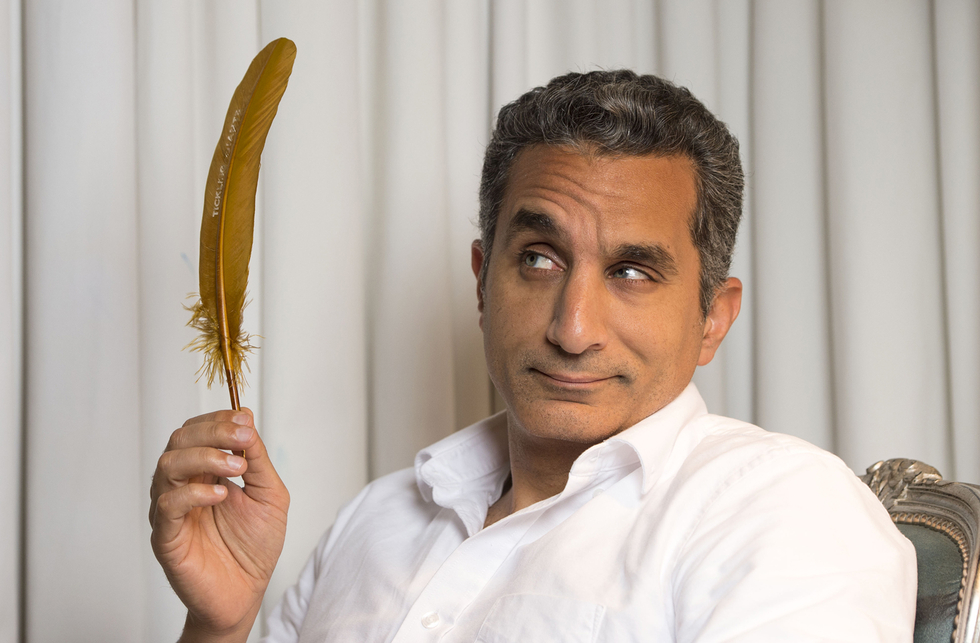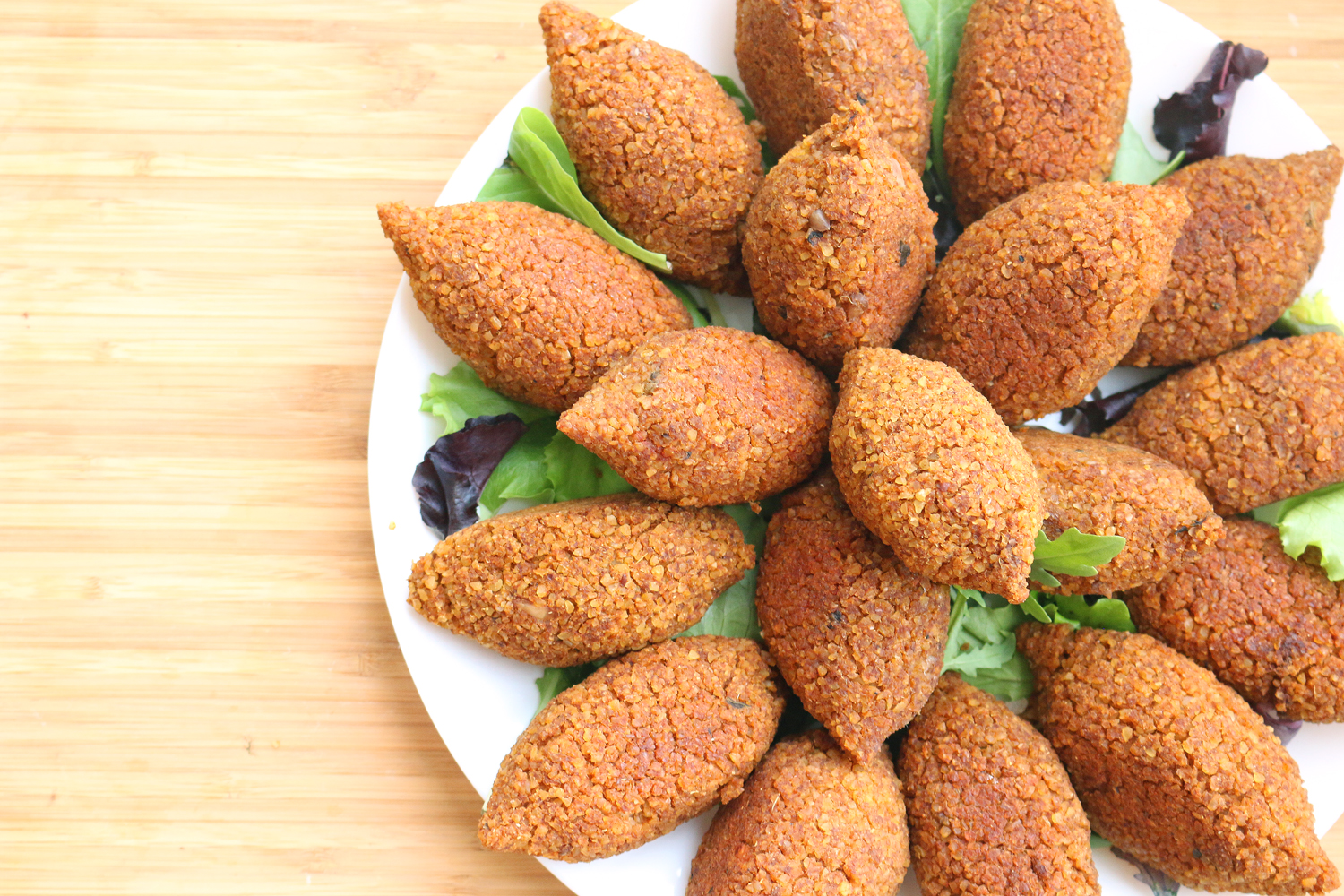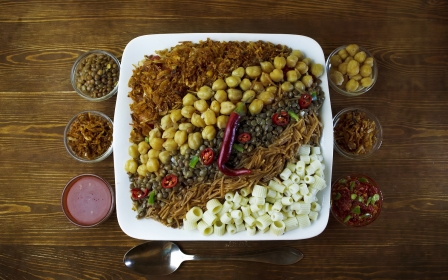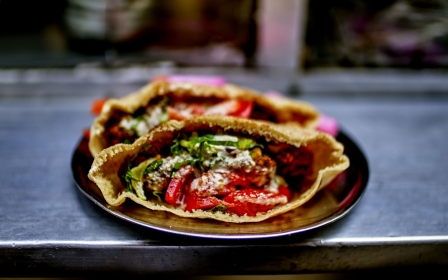How to go vegan and stay vegan in the Middle East
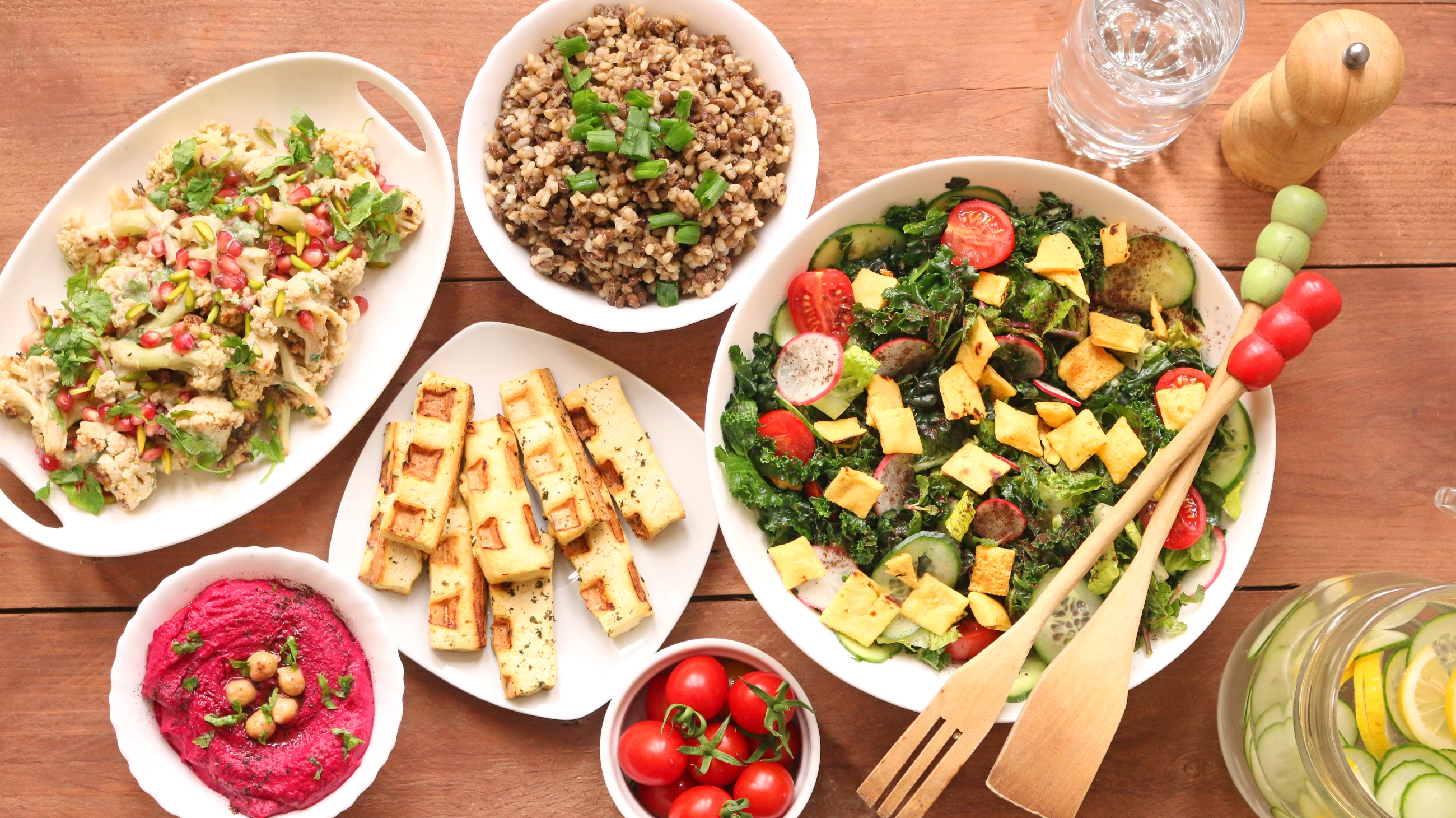
For me, it all started at the age of 12 when I suddenly went off meat and chicken. It might have had something to do with my love for animals. Growing up in Bahrain, home was a place we shared with cats and dogs, some of which I named when I was only four years old.
One of my earliest memories was being taught how to gently pet Mary, our Persian cat who lived to the age of 14. Dogs like Honey, Maggie, Blake, Rocky and Clea were childhood companions, and pets became family members who we collectively cared for.
'After reading a harrowing tale about a farmer slicing off the snout of a live pig ... I knew I would never eat meat again'
- Nada Elbarshoumi
It also helped that from a young age, I adored vegetables, even all the ones my brother refused to go near. There wasn’t a single leafy green that didn’t agree with me. I always went back for seconds of my mother’s classic Egyptian stews – including bamia, the slimy, green okra dish that is as unappealing to Arab children as brussel sprouts are to western kids.
But my family, like many in the Middle East, were still heavy consumers of meat in all of its forms. And when it comes to Arab hospitality, serving these dishes extends far beyond the hedonistic pleasures of taste. An iftar table during Ramadan, for example, isn’t complete without a healthy spread of meat-based platters, mounds of fragrant spiced rice and lashings of yoghurt and cheese. To present a meal featuring nothing but vegetables would be unheard of: “We’re not destitute. Why wouldn’t we serve meat?”
Meat is also closely associated with several religious celebrations. In Egypt, Coptic Christians celebrate Easter day by feasting on meat and Egyptian fatteh – the traditional dish of rice, meat and crispy flatbread, which Egyptian Muslims also prepare for Eid al-Adha. This “festival of sacrifice” observed by some 1.8 billion Muslims worldwide has ritual animal sacrifice at its core.
New MEE newsletter: Jerusalem Dispatch
Sign up to get the latest insights and analysis on Israel-Palestine, alongside Turkey Unpacked and other MEE newsletters
Other delicacies consumed in Egypt, this time to celebrate the advent of spring, or Sham El Nesseem, are the pungent, salted fish feseekh and molouha.
Dairy too
But it wasn't just meat. After years of battling near-chronic sinus-infections, I discovered I had a sensitivity to dairy products. Within days of cutting out my beloved cheese toasties and begrudgingly handing my last block of halloumi over to my roommate, my symptoms had all but disappeared.
As I began to read around the other purported health benefits of a plant-based diet, I decided to give veganism a go. A month later, I felt better than ever. I could breathe easily and was sleeping better as a result, had bounds of energy, clearer skin and a settled stomach.
By this point, I was studying at university in the UK and struggling with some body image issues. When I decided yet again to try and lose some weight, I came across the book Skinny Bitch. What I thought was going to be the secret to a svelte new physique, turned out to be a no-nonsense, eye-opening expose on the detriments of an animal-based diet and the horrors of the animal agriculture industry.
It was after reading a harrowing tale about a farmer slicing off the snout of a live pig as he screamed in agony that I knew I would never eat meat again.
Making the transition
It wasn’t easy to begin with, but I had made a commitment and wanted to make sure it would be lasting. After all, in a region where kebabs, kibbeh and lamb tagines are ubiquitous, it’s hard enough to give up meat, let alone dairy too. But it's not impossible.
What have I learnt along the way?
Avoid labelling yourself in the beginning. Though there is no need to lie or hide your efforts to go vegan, it is important to be aware that labels can often sound provocative, intimidating, and might categorise you as a potential cause for concern, especially with more traditionally minded family members.
Next, do your research. It helps to have a few statistics on hand and make sure you can confidently answer questions like: “Where do you get your protein from?” and “Oh, but you eat fish, right?” and the popular plea: “But God gave us meat, why would you refuse such a blessing?”
If someone genuinely wants to learn more about your lifestyle, then you can suggest a vegan documentary for them to watch, email an academic article on plant-based diets or send a vegan meme to your group chat. It’s all in the delivery, and you may be surprised at how open your family and friends will be.
Cooking is also a great way to communicate how varied and satisfying a vegan diet can be. Once people see for themselves how simple preparing tasty vegan food can be, it is much easier for them to accept. Who can resist a bright bowl of beetroot hummus, or a fragrant pumpkin kibbeh stuffed with spinach and chickpeas?
Lastly, don’t forget to practise what you preach. This means not wrinkling your nose at the meat on the table, and keeping the passive-aggressive commentary about what someone else is eating to yourself.
Tips for travellers
For the vegan-curious traveller to the Middle East – I have good news for you.
Despite the meat-centric diet of the typical Arab household, Middle Eastern cuisine itself is incredibly diverse, with no shortage of delicious and nutritious dishes that just happen to be vegan.
Almost any Arabic restaurant will serve a decent selection of vegan mezze, salads and soups – think falafel, ful (fava beans), hummus, baba ghanoush, stuffed vine leaves, spicy potatoes, tabbouleh, fattoush, rocket salad, or a side of lentil soup. The list goes on.
I’ve become an expert at constructing a main meal out of sides – my go-to combo is a big bowl of whatever salads are on hand, topped with falafel, balila (chickpeas sautéed with olive oil, lemon and garlic) and a dollop of my all-time favourite, hummus.
If you happen to be in Egypt, koshary is a popular dish combining rice, pasta, lentils, chickpeas, fried onions and a fiery tomato sauce.
'...all over the world, food represents much more than just sustenance. It’s the way we communicate our heritage and background'
- Nada Elbarshoumi
But if you’re dining out, you’ll need to check whether dairy products have been added to the dips, sauces and pastry dough (such as manakish) and whether soups or stews were made with an animal-based stock.
One summer, my father and I were dining at a popular local restaurant in downtown Cairo when I bit into some wara’ 'enab (stuffed vine leaves) and was struck with an overwhelming flavour of meat. To my dismay, the meat-free stuffing had been boiled in a bone-broth stock.
Don’t be surprised if the term “vegan” draws a blank in some restaurants – the phenomenon is still relatively new in the region. If you’re in Egypt or any Arab country with a significant Christian population, however, try asking for the more commonly recognised seyami options – food prepared for Christians fasting during lent.
And to help find the eateries that cater to a vegan diet, there are resources. Community-driven Happy Cow website (which also developed a mobile app) features listings and reviews of vegan restaurants in just about any major city in the world.
The sweetest thing
Since going vegan over seven years ago, there have been only a handful of “conventional” dishes that I’ve struggled to recreate. Tofu halloumi, for example, was not an instant success and took many a failed flop before I was able to strike the right balance of flavour and texture.
Vegan omelettes were also a tough one to crack (pun completely intended) but that changed when I discovered the wonder that is an eggless frittata.
But then came a recipe I spent more than three years trying to perfect: the vegan kunafa.
The funny thing about Arabic sweets (and desserts in general, if I’m totally honest) is that I only really started to crave them after I went vegan. I’m not sure if this is down to an evolution of tastes, having had a predominantly savoury tooth for most of my life, or perhaps a subconscious desire for that which I could not have. But regardless, almost every Ramadan I find myself hankering for traditional sweets. Luckily, said cravings have resulted in some pretty successful vegan versions of basbousa, muhallabia, and Egyptian pumpkin pie.
If I had to pick a favourite Arabic dessert, however, kunafa would hands down be the winner. Crispy filo pastry, creamy and slightly salty cheese, all drenched in an orange-blossom-water-infused syrup and topped with crushed pistachios. What’s not to love?
For the record, this kunafa was non-vegan approved. My mother marvelled at how close it tasted to the “real” thing and was genuinely impressed with the taste and texture of the creamy cheese filling, thus proving what I suspected all along: with a little bit of patience and a lot of sugar – anything is possible.
Power through
If you’re still struggling with acceptance, realise that you’re not alone. In an episode on his popular YouTube channel, Dubai-based Syrian YouTuber Ebrahim Ramzat says that he was surprised by reactions to his conversion to veganism.
"People attacked me, mocked me, told me I was going to die if I didn't eat animal products. I'd faced some resistance from people when I was a healthy eater, but nothing compared to the harsh criticism I started to get as a vegan.”
A wave of fully vegan restaurants have popped up across the region over the last five years, with several already thriving in Bahrain, Saudi Arabia, Kuwait and Lebanon
But there are signs that the trend that led The Economist to dub 2019 “the year of the vegan” has taken hold in the Arab world too.
A wave of fully vegan restaurants have popped up across the region over the last five years, with several already thriving in Bahrain, Saudi Arabia, Kuwait and Lebanon. Dubai now also boasts the world’s largest vegan restaurant.
On her site SukkariLife.com, Riyadh-based vegan blogger Raoum AlSuhaibani credits social media with connecting her to other vegans in Saudi Arabia.
"Get out of your comfort zone and message a vegan person in your area [via] Instagram or Twitter. Use hashtags to find [other] vegans! I used to think that [I was] the only vegan in Riyadh until I was SHOCKED by the [number] of [vegans in this city]."
Popular Egyptian political satirist Bassem Youssef is a staunch advocate of the whole foods plant-based diet, making it the subject of a new YouTube show he fronts, called PlantB.
Since it launched in May 2019, the channel has gained more than 300,000 followers. Youssef has since inspired hundreds to try veganism with a 21-day challenge, which many are choosing to document online using the show’s hashtag, #PlantB.
Keep it simple
The key to committing to a vegan diet is to ensure the change is sustainable for you to maintain in the long run. Start slow, making small and incremental changes to your diet, giving your body time to acclimate to any new eating habits. Aim to add first and subtract later – that is start to integrate things like fruits, vegetables, whole grains, beans, legumes, nuts and seeds into your diet before you start to eliminate animal products for a smoother transition.
Alternatively, you might consider cutting out animal products one or two days a week to give plant-based eating a try before you dive into the deep end.
Above all, my advice is to keep it simple. Choose natural, whole foods and avoid overly complicated recipes with 20-plus ingredient lists. It’s easy to become overwhelmed in an age where processed meat and dairy alternative products are becoming increasingly more accessible.
But remember that, all over the world, food represents much more than just sustenance. It’s the way we communicate our heritage and background. In the Middle East especially, it tends to be the focus of our family gatherings. It’s important to stay positive, respectful and trust that with time, your family will grow to accept your choice, even if they don’t completely agree with your reasoning.
At first, my family couldn't seem to understand my desire to only eat vegetables. But today they are the ones meticulously explaining to waiters what I can and cannot eat, while my extended family will surround my spot at the table with all of the vegan-friendly options they have prepared.
Try to think of your family’s acceptance of your lifestyle choice as a journey – the same way it may have taken you time to come around to the idea of going vegan, they too will need time to adjust.
This article is available in French on Middle East Eye French edition.
Middle East Eye delivers independent and unrivalled coverage and analysis of the Middle East, North Africa and beyond. To learn more about republishing this content and the associated fees, please fill out this form. More about MEE can be found here.


